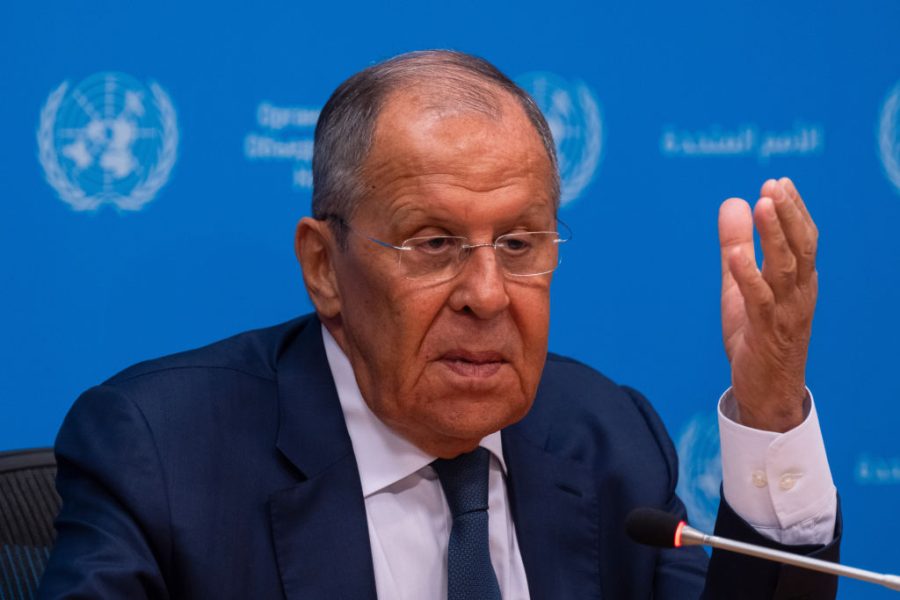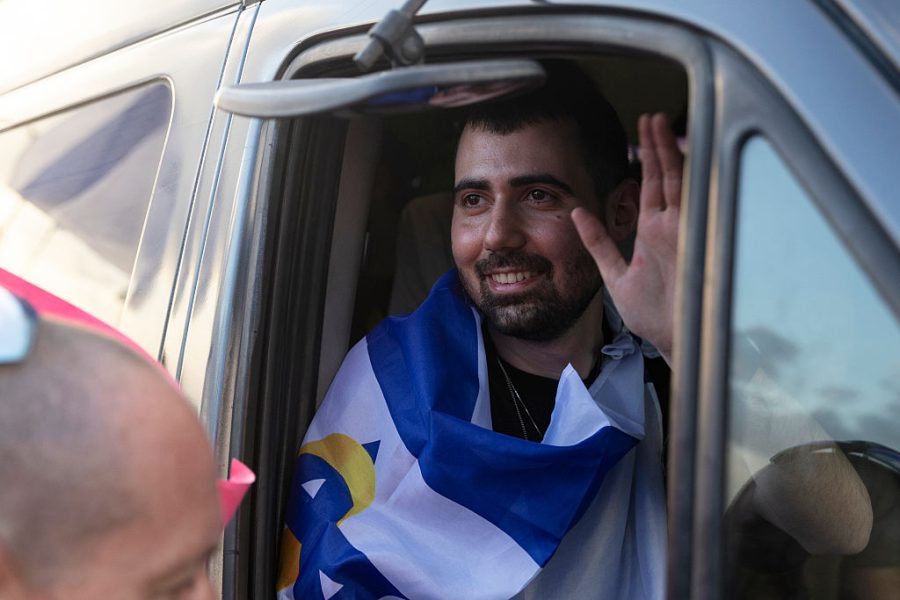The West may like to convince itself that it is, in the words of one American diplomat, ‘strangling the Russian foreign ministry’, but it ought to look south for a rather different perspective. On Tuesday, foreign minister Sergei Lavrov was in expansive mood as he announced the formation of a brand-new Department of Partnership with Africa.
Recognising that for years Moscow had neglected Africa, Lavrov blamed in part the bankruptcy of the late USSR and Russia in the 1990s, when embassies had to be shut down and sold off. I remember one polyglot diplomat who, while serving in Nigeria, had taken to spending his mornings giving English, French and Russian classes to make ends meet because his salary was so often in arrears. However, he also blamed the ‘strategic mistake’ of focusing too much on relations with the West and unrealistic expectations of cooperation. In this, he has a point. In the 1990s, for sure, Boris Yeltsin’s government was desperate to join what seemed like the camp of the Cold War victors.
Moscow is not offering aid, but it has guns, oil and a tempting anti-Western narrative
Yet even as Vladimir Putin charted an increasingly assertive and confrontational policy towards the West, for years Moscow still saw little reason to concern itself with Africa. Even when it held its first Russia-Africa Summit in 2019, there was no real strategy there, but rather a desperate search for potential political and business opportunities and a desire to troll the West. From this, though, something that begins to look like a strategy has emerged, built on three pillars.
Most notorious are the mercenaries. Despite the pyrotechnic end of its rebellious founder, Yevgeny Prigozhin, the Wagner corps still survives in Mali and the Central African Republic. Most of its forces, though, have been rolled into the new Africa Corps, under tighter government control. Unlike Wagner, the Africa Corps is less focused on actual fighting and more on conventional security assistance missions, training local troops and providing security in countries such as Libya, Niger and Burkina Faso. Despite some setbacks, they have enough customers who value their services, and although losing the opportunity to stage supply flights through the Hmeimym airbase in Syria would pose logistical problems for them, they are not going anywhere.
There is also an understated but significant soft power angle. Under the umbrella of the African Initiative, which describes itself as a ‘Russian news agency about events on the African continent’, Moscow is building a growing network of propaganda sites, local affiliates and conventional outreach opportunities. It may not be that many Africans necessarily see Russia as a promised land – though there are many doctors, engineers and soldiers who at some point have been trained there – but instead there is a surprising receptivity to a pernicious narrative that frames Russia’s aggression in Ukraine as an anti-colonial war: that Ukraine is simply the proxy of a hegemonic West trying to force Moscow into line. It is nonsense, but appealing nonsense in countries whose experience of colonialism was at the hands of the British, French, Belgians, Italians or Germans.
Indeed, the global sanctions regime has given this a new spin, as African countries are now being expected to turn their backs on Russian business for fear of primarily US secondary sanctions. One West African diplomat angrily described this as ‘financial imperialism’ – and it is difficult to disagree. After all, the third pillar of Moscow’s campaign is economic, especially the supply of discounted Russian oil. In the first year of the war alone, sales to Africa leapt fourteen-fold, and despite all efforts to clamp down on the ‘shadow fleet’ tankers and the financial loopholes that allow this trade to continue, the market finds a way.
In many ways, one has to acknowledge that Russia is simply the beneficiary of the retreat from Africa of the West, especially France. Moscow is not offering aid, but it has guns, oil and a tempting anti-Western narrative – and all this is bearing fruit. Last year, Russian embassies were opened in Burkina Faso and Equatorial Guinea, and new missions in Niger and Sierra Leone are expected to start working in 2025, with ambitious plans also in South Sudan, Gambia, Liberia, the Union of Comoros and Togo. The director of the new partnership department, Tatyana Dovgalenko, clearly has been given unprecedented resources and political priority.
But why? ‘We are convinced that Africa is our natural ally,’ claims Lavrov, but to what end? In part, it is to build political support: an impoverished African nation, after all, has the same single vote in the UN General Assembly as the US or Britain. The wider campaign is also to ensure that Moscow continues to have customers for its oil today and maybe its weapons again tomorrow, creating connections that the West will have trouble prising apart without being willing to provide more aid and fewer patronising homilies. It is also world-class trolling, especially in Paris, where news of Russian advances in Africa seem to be taken as seriously as battlefield successes in Ukraine.
Yet as much as anything else, it is also performative, reinforcing the idea that a resurgent Russia is a global power again, even if on the cheap. When not castigating the West for its myriad sins, Lavrov’s role now seems to be to provide what seeming successes he can for the Kremlin and its propaganda machine. At present, Africa is proving fruitful ground.








Comments